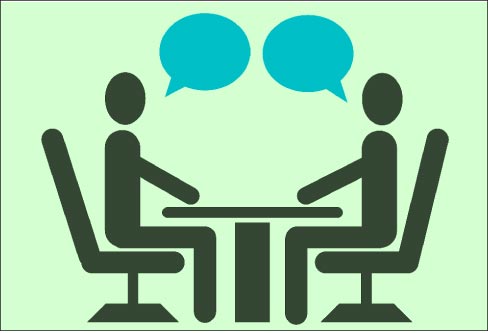Honesty
Sharon Koehler
Artistic Stone Design
I don’t know about y’all (excuse me, my Southern roots are showing), but we have a fantastic group of co- workers. We go through a very long process to hire someone, including multiple interviews, skill tests, reference-checking, etc. We have a rather low turnover rate, which is unusual for the industry. A lot of our employees have been here five-plus years. We are proud of that. A lot of people who apply here don’t get hired here. We are proud of that, too.
However, lately we have come to realize that there is one area we seem to be overlooking when we interview people. We don’t look into, discuss or try to see how honest they are. Miriam–Webster dictionary defines honest as:
Free from fraud or deception:
LEGITIMATE, TRUTHFUL.
 |
|
You can tell a lot about a person in how they answer the question, “What does honesty/integrity mean to you personally?” |
 |
Dishonest employees can definitely be trouble for any business, but a small business can suffer at the hands of even one dishonest employee. A recent study stated that employee theft costs businesses approximately $200 BILLION a year. This figure includes but is not limited to product, equipment, money and time theft. Take a few dollars out of petty cash? Inflate the cost of a job to a customer and pocket the difference? Pad an expense report? Do personal work on company time? Work a side job with company equipment and don’t tell anyone? Take home office supplies? Play with the company’s books (even just a little)? Misuse a company credit card, gas card or vehicle? Cheat a little bit on your commissions report? Tell a fib or two on a resume? These are just a few examples of employee dishonesty. There are many more.
So, how can you be sure the person you are interviewing to hire is honest? Truthfully, there is no surefire way to determine a person’s honesty, but there are things you can do, red flags to look for and certain questions you can ask.
Start at the beginning. When you post a want ad, state the values of your company and what sort of employee you are looking for. If you are clear from the beginning about what kind of company you are and the values you are looking for in an employee, you stand a better chance of attracting that type of employee.
There are things to look for on a resume or job application. Job hopping is a big one. Back when the recession hit, job-hopping was a common occurrence when businesses were closing their doors left and right, but these days it’s considered a red flag. Another red flag is a lot of companies or references you can’t check or verify, for whatever reason. Not every place a person works goes out of business. Explore large gaps of time that the applicant was unemployed.
Here again, we are post-recession, so a large, unexplained employment gap is a red flag.
Make sure a person’s stated skill set matches their stated job positions. For example, if someone says they know how to operate a CNC machine but their resume says they were a waiter and a chauffeur, that is something to check out, because why would a waiter or a chauffeur know how to operate a CNC machine? Something is up. Either they are misrepresenting their skill set or they don’t want to list the company where they received their CNC experience for some reason. Warning!
There are questions you can ask a possible new hire to get a sense of how they feel about honesty and integrity. If you just ask, “Are you an honest person?” that pretty much gets you nowhere.
Try: “Has there ever been a time in your past employment that you made a big mistake that had huge consequences, and no one knew it was you? How did you handle that?” Everyone makes mistakes. The answer determines whether they own their mistakes or cover them up. If they cover them up, they are probably not all that honest.
Or: If you found out that one of your co–workers was stealing from the company, what would you do? There are a couple of good answers to this question. But if their answer doesn’t include telling company management or the police (depending on the circumstances) you might want to think twice about hiring that person.
I like this one myself:
What does honesty/integrity mean to you personally? You aren’t looking for the above-mentioned Merriam–Webster definition. You are looking for the answer that tells you how important it is to them, how they feel about it.
You can give your applicant an integrity test. This is not a 100 percent reliable answer to whether the applicant is honest or not, but it can be considered with all the other information you have. I took a huge test like this when I went to work for a nationwide big box store. It was multiple pages and took a while. These days you can find them online and they can be completed in 20 minutes or so.
Always ask for references and check them. There are things you might want to ask that you legally cannot ask, but the one big one you can ask is if they are eligible for rehire. It is a simple yes-or-no question that will speak volumes.
Now, all these suggestions are great, but the ultimate person to listen to is yourself. If their credentials look great on paper and they answered all your questions to your satisfaction, but you still have doubts, or something feels not quite right, err on the side of caution. One bad employee can ruin your workplace and your reputation.
Skills can be taught. Values can’t.
Please send your comments to Sharon Koehler at Sharon@asdrva.rocks.